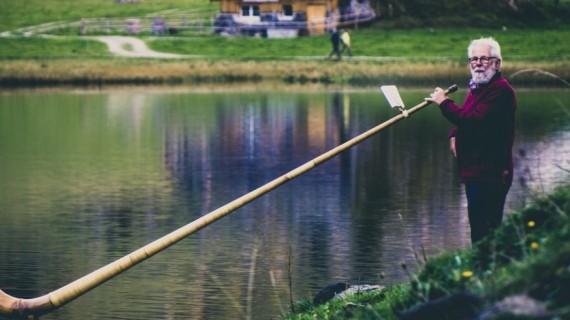A great way to experience local culture is to attend events, such as music festivals and carnivals. In Europe, you get a long list of options throughout the year. As entertaining and illuminating as cultural events can be, they have traditionally had a bad reputation for damaging the environment. Many organisers are working to change this by making eco-friendliness part of their plans. Green festivals and other events are increasingly growing popular in Europe, consequently, promoting sustainable tourism. The following are some alternatives you can add to your itinerary while visiting Europe.
Terraforma, Milan Italy
One of the biggest annual events in Italy is the epitome of environmental friendliness. The 3-day festival involves attendees in protecting nature. Festival goers work together to leave the place as unharmed as possible. Respect for the environment is the event’s key message. Stages and other structures use eco-friendly designs to guarantee minimal impact on the surroundings. Local architects use sustainable materials to reduce the carbon footprint. The festival also has a well-planned waste management programme that includes recycling stations, biodegradable dinnerware, and green stewards. Terraforma hosts popular DJs while also offering workshops and lectures on various topics. You can reduce your carbon emissions by finding accommodation close to the festival. Searching ‘the nearest motels to my location‘ should give you several options.
Oyafestivalen, Oslo Norway
The musical lineup at one of the biggest Norwegian music festivals gets better every year. Since 1999, the event has been attracting visitors from all over. As attendance grew, it became necessary to establish eco-friendly measures to decrease the festival’s environmental impact. For starters, the venue is close to the city, allowing attendees to use fossil-free public transportation. Alternatively, you can bike to the location if you are staying nearby. Rather than power the event with fossil-fuel generators, the festival plugs into the city’s power grid. It also provides sustainable food experiences. Oyafestivalen was the 2020 AGF Circular Festival Award and International Greener Festival Award winner.
DGTL Amsterdam, Netherlands
Every April, Amsterdam receives thousands of visitors for the DGTL music festival. As DGTL strives to become the world’s first circular festival, it incorporates sustainable practices. Its plant-based menu ensures that vegetarian and vegan attendees can enjoy rye food experiences as much as everyone else. The location features green designs to promote the eco-friendliness message. Recycling, environmentally-friendly transport and food waste reduction are other measures the event uses. The Dutch edition of DGTL is a proud recipient of two AGF awards for its green efforts.
Beer and Flowers Festival, Lasko, Slovenia
Every summer, one of the greenest destinations in Slovenia, Lasko, hosts the Beer and Flowers Festival. The event invites local bands and other performers, ensuring plenty of entertainment. Flowers professionals, florists and enthusiasts meet here to make merry and marvel at the beauty of the region. You also get to celebrate the brewing tradition and drink Zlatorog beer if you partake. This festival boosts sustainable tourism because the location is designed to decrease environmental impact. You can walk from one attraction to another to interact with locals and visitors. Reusable cups and cutlery are other ways the festival promotes sustainability.
Shambala, Northamptonshire, UK
If you are looking for a child-friendly festival, then Shambala is it. At this festival, you can see circus acts, leave your children at the kid’s area or enjoy drag bingo. Music performances from a wide-ranging selection of artists are present too. The four-day event gets more than 15,000 guests, which translates to a significant environmental impact. How does it counter this? Shambala has a Recycling Exchanges programme that sees festival-goers recycle campsite waste. Dinnerware used in the event is from plant fibres, making it easy to compost after use. Car-free transport alternatives reduce carbon emissions from festival goers.
The above are only a few events you can include on your list of things to do in Europe. Sustainable tourism is a responsibility you should take seriously, and it begins with finding eco-friendly activities to reduce your carbon footprint as much as possible in every place you visit.
Cover image: photo by Teksomolika via Freepik




